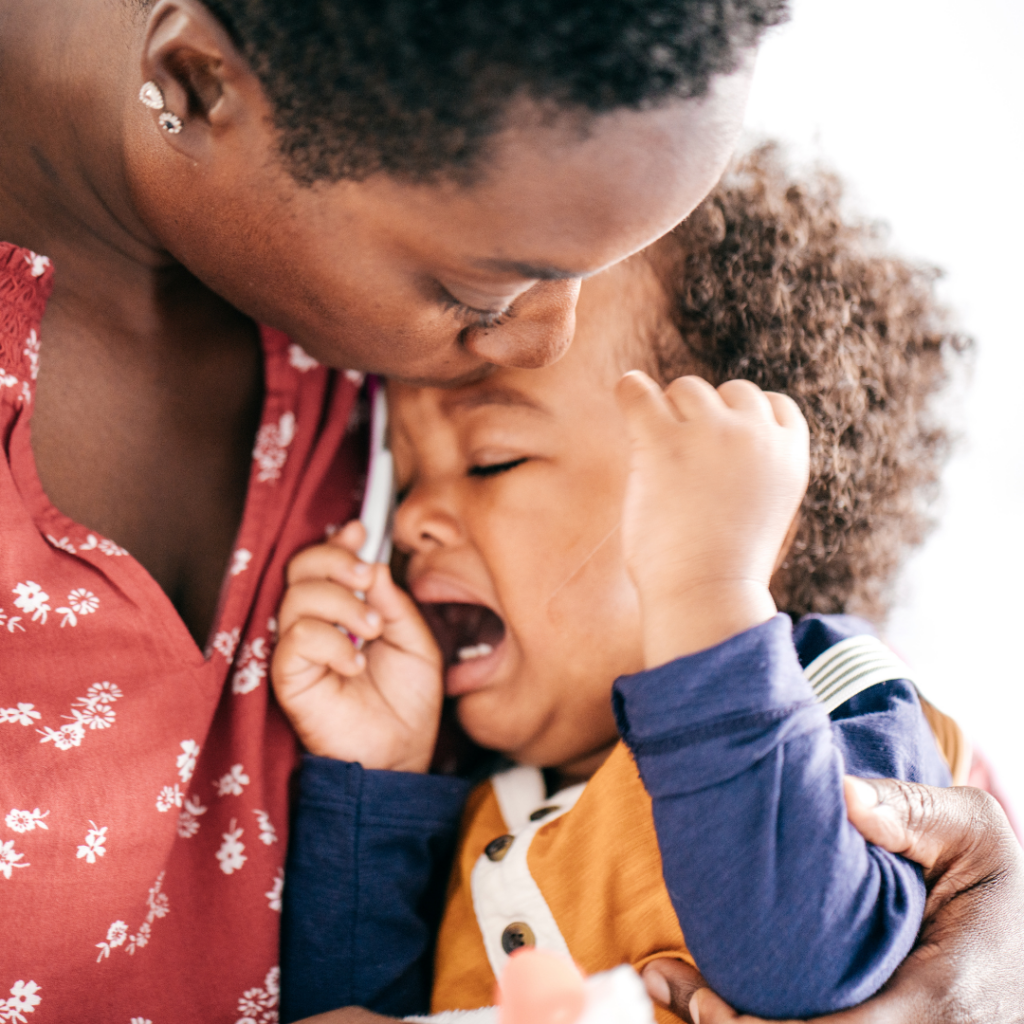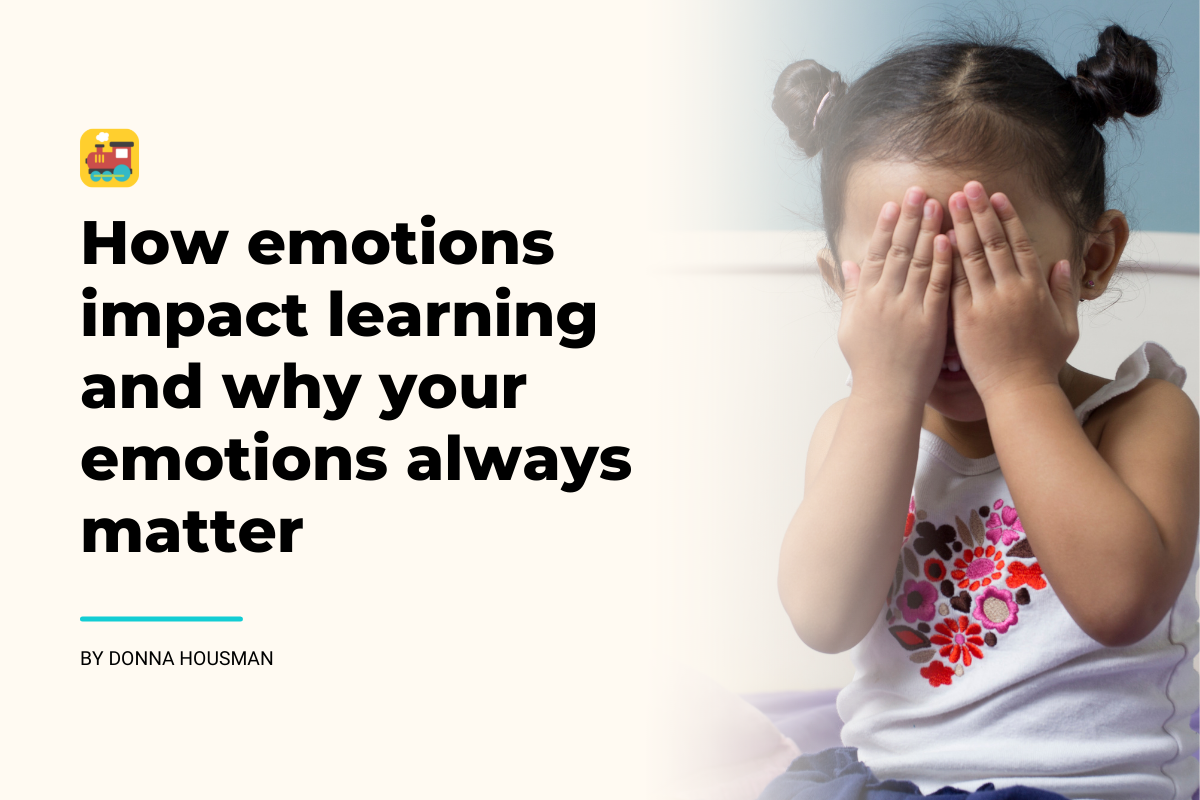In a recent webinar, we welcomed Dr. Donna Housman and Emily Stone from Housman Institute. Donna and Emily joined us for a conversation on “The Power of Emotional Intelligence for Early Childhood Educators.” Dr. Housman helped us understand that as early childhood educators, it is imperative to focus on our own emotional well–being first. We explored why this is important not only for our own mental health, but also for our physical health, emotional well-being, and success of the children in our care. Donna and Emily discussed how young children’s interactions and experiences with the significant adults in their lives are foundational to their long-term emotional, cognitive, and social development. These key child-adult relationships help to inform and shape a child’s ability to understand and manage their own emotions and those of others, and lay the foundation of emotional intelligence by providing them with an emotional toolkit for life.
Watch the webinar that inspired this article here!
Before helping children successfully deal with their stress and anxiety, educators need to have the skills to be able to effectively manage their own stress and the feelings that accompany it.”
Your emotions matter now more than ever

Long before the pandemic, early childhood educators were already experiencing record levels of stress, anxiety, and burnout. The state of our current world – the pandemic, combined with social and global unrest – only exacerbated the situation, leaving so many educators unable to do the work they love, and many leaving the field altogether. Managing your own emotions and needs, while also supporting the emotions of your colleagues, children, and families can be too much to handle. More than ever before, early childhood educators are feeling anxious, stressed, depressed, and burned out. When feelings are left unmanaged, our thinking is interrupted – we cannot focus, problem-solve, make decisions, or move forward.
The brain likes predictability, yet the last few years have been anything but. When we are overwhelmed, our brain becomes hijacked by emotions. This leads to difficulties across the board – when engaging with others, when navigating challenges, developing a positive sense of self, and the development of empathy. Our daily experiences become an obstacle course of emotions, making it all the more challenging to do or even be our best.
Watching for the signs: what is the difference between stress and burnout?
Stress is the body’s response to overwhelming circumstances, which can be negative or positive changes. Stress can be temporary, such as when preparing for a presentation, or prolonged, like navigating the third year of the pandemic. Chronic stress can impact your whole body and when left unmanaged, stress can leave a long-term impact physically and emotionally.
60% of early childcare educators and caregivers felt the pandemic negatively impacted their mental health”
Education Policy Initiative
Oftentimes, we may not be aware that we are stressed. It is so important to have the skills to look for triggers or signs of stress, such as feeling overwhelmed, decreased energy, headaches, depression, and changes in appetite.
70% of early childhood educators said they felt anxious and negative about the future”
Education Policy Initiative
Burnout, on the other hand, is a state of emotional, physical, and mental exhaustion. It is often work-related and involves feeling a loss of control. Signs of burnout are feeling hopeless and empty.
Burnout rates have risen from 25% to 57%”
RAND Corporation
Learning to be aware of the signals our body sends us is key. We need to pay attention before our stress, anxiety, frustration, or burnout escalates. We need to have the skills to not only manage our stress but also understand what is making us feel that way and learn how to navigate challenges differently the next time. In doing so, we are building our own emotional intelligence.
How do our emotions impact our work?

As we know, children develop within the context of relationships with the key adults in their world. Young children are emotional detectives – they tune into and absorb our actions, reactions, responses, and behaviors. They are looking to us to figure it all out-how should they be reacting, and responding. Before we can begin to model for and guide children in their emotional development, we must first be able to understand, manage, and regulate our own emotions.
Our ability to guide and support children in navigating challenges while having the skills to listen to and try to understand each child’s emotional experiences, including trauma, is essential. But we cannot do this without ensuring that we put on our own oxygen masks first. With the skills to manage and regulate our stress, anxiety, and frustration, we become more aware and empathetic of the feelings and experiences of others, enriching our everyday experience both in and out of the classroom.
Watch the webinar that inspired this article here!
Want to learn more about important topics in early education such as socio-emotional learning? Sign up for the next webinar below, it is FREE! Even if you can’t join live, you will be emailed the recording and slides just for registering!


